Feeling Gravity’s Pull in Melissa Mendes’ The Weight #13 & 14
This is one of those rare comics that makes you feel something deep and heart-wrenching. It’s painful to read; that’s part of why it’s so good.
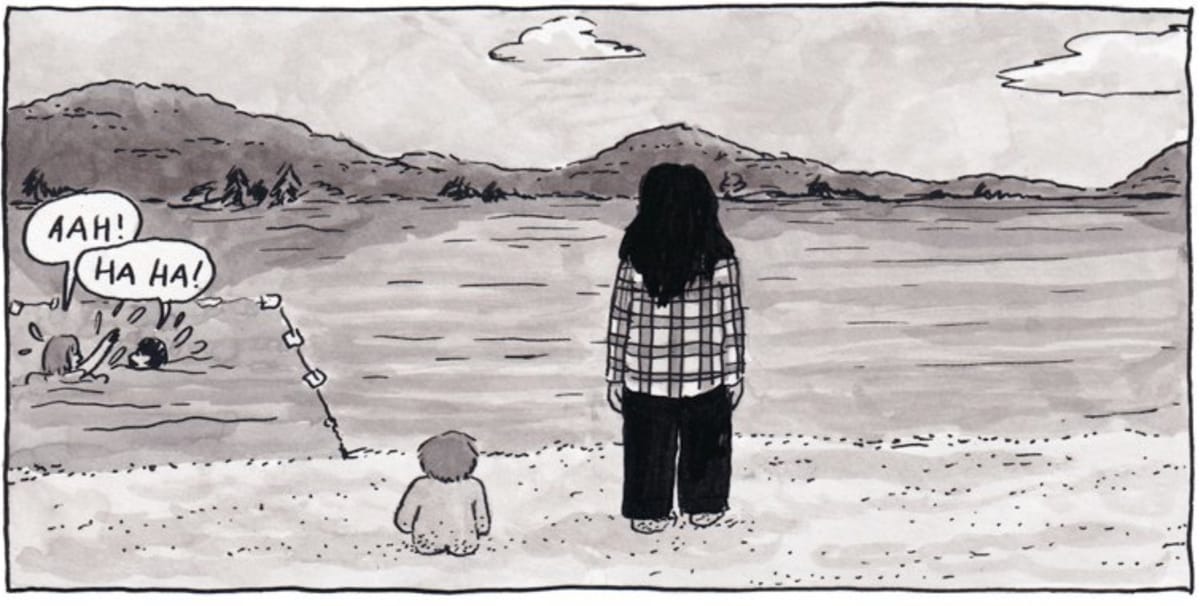
In her series The Weight, cartoonist Melissa Mendes delivers gut punch after gut punch. Since she began telling this story back in 2015, Mendes’ mini-comics trace the life of a young woman, Edie, from her birth in the first issue to the latest issue where she’s given birth to her son and is living in a trailer with her resentful and harsh husband. Each new issue in this series is a proverbial slap in Edie’s face as she faces a hard and cruel life, with no real example to show her what her life could be. Edie’s grandparents raised, giving her a good life, but tragedy after tragedy continues to knock her down. And now she’s trapped by a loveless marriage that exists only because of an unplanned teen pregnancy. Married with a newborn, she is still a child herself as the world continues to beat her down at every opportunity it has.
Even with that recap, it’s almost too painful to describe each of those beatdowns that occur issue after issue. It’s one event after another that shows the cruelty of this life. The latest two issues begin shortly after the birth of Edie’s son, Calvin Jr. After an unplanned teenage pregnancy, Edie and the father Calvin got married more out of obligation than out of love. Calvin seemed like a decent kid back when he was just a farmhand but again, that’s all he was— a kid. He was not prepared to have to be an adult, let alone a father and a husband. Living in a trailer and working at a carnival running the rides and games, Edie seems doomed to be in the same kind of marriage that her mother was- a loveless relationship punctuated by brutality. When she was just a young child, Edie’s father beat her mother to death. That’s the past that Edie has lived with, the shadow constantly over her entire life.
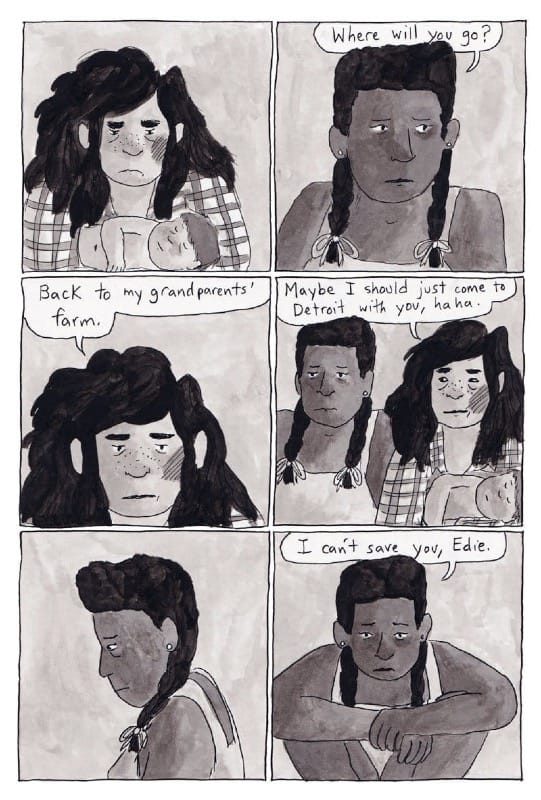
So much of Mendes’ story has been about Edie having the opportunities to avoid the painful life that her mother lived, right down to being raised by her maternal grandparents and even there following in her mother’s footsteps while hopefully avoiding mistakes made. But now issue 13 feels like a repeat of the earliest issues of this series as we see a mother trapped by her circumstances. Mendes shows Edie on the same path that her mother was on, causing us to worry for Edie because we’ve already seen where this could lead. We’ve seen this happening before with Edie’s mother. Mendes doubles back on her story and it makes it clear just how much this is a cycle that needs to be broken.
The cycle becomes so apparent to the audience when Edie, working at the carnival one night, realizes that someone in line for one of the rides is her childhood friend Gloria. Back when they were both young children, Gloria’s mother tried to protect and help Edie’s mom, taking them into her home when they needed protection from Edie’s father. Now both young women, Gloria sees history repeating itself in Edie. She recognizes the bruises and Edie’s deflection from wanting to talk about it. It’s two childhood friends finding each other ten years later but also the memories of what those days were like as well as the recognition of those events echo into the present day. “I can’t save you,” Gloria tells Edie. “My mom tried to save your mom. It ate away at her that she couldn’t.” You can see Edie in that moment trying to be strong but realizing the rejection she’s facing; she’s alone in this struggle. Gloria isn’t being cruel or heartless; she’s just being honest with what she can and can’t do.
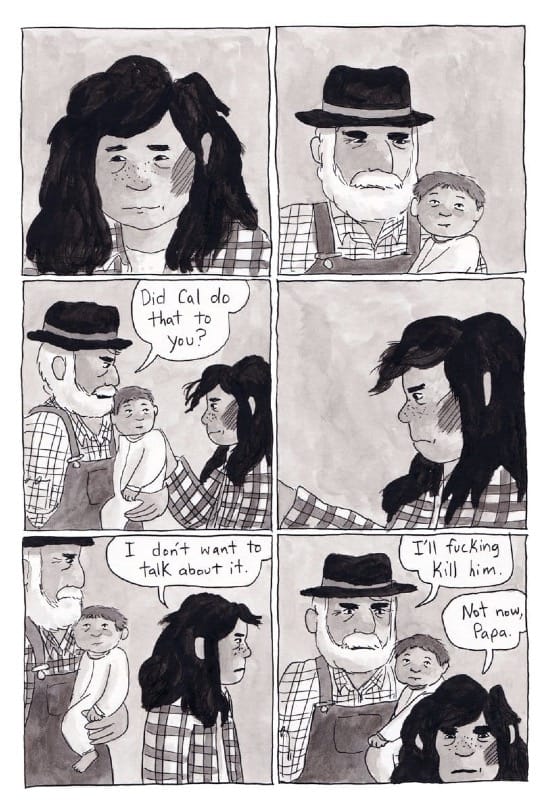
In issue 14, Edie takes the baby, leaves Calvin, and returns to her grandparent's farm. This is one of those issues that juxtaposes joy with pain— her grandfather is one of the best characters in comics, so kind, warm, and loving. Just to see how he greats his granddaughter and great-grandson makes you believe in this life. But he immediately realizes why she’s back and recognizes what she’s running from because he’s seen it before with his daughter. He wasn’t able to protect her the way a father should. He’s in the same cycle of events as Edie, trying to break away from the repeating ugliness that will most certainly follow.
Mendes’ simple and clear storytelling creates a lot of room for her artwork to be charged and emotional. Mendes’ characters are actors on the page, conveying emotions and feelings that draw us into their lives. Edie becomes so much more real because we can see the pain, the fatigue, and the occasional joy in her face. There’s an immediateness and openness in Mendes’ pages that allows us to have an intimate entry into Edie’s life but it’s painful in ways that few comics can pull off. It’s not asking for sympathy so much as it’s drawing empathy out of us. This is one of those rare comics that makes you feel something deep and heart-wrenching. It’s painful to read; that’s part of why it’s so good.
You can read Melissa Mendes’ The Weight on her website or subscribe to her Patreon to get physical copies of it.
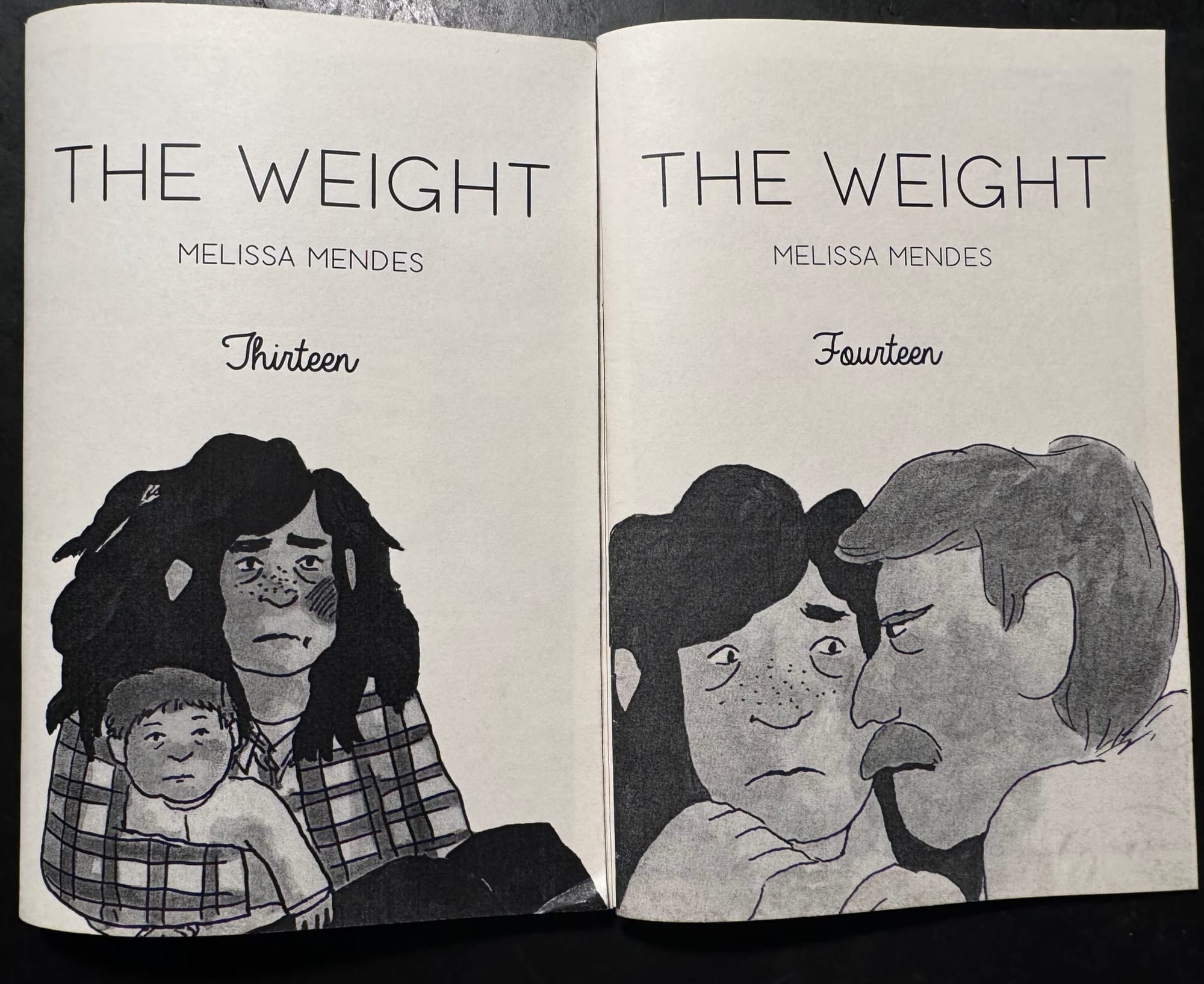


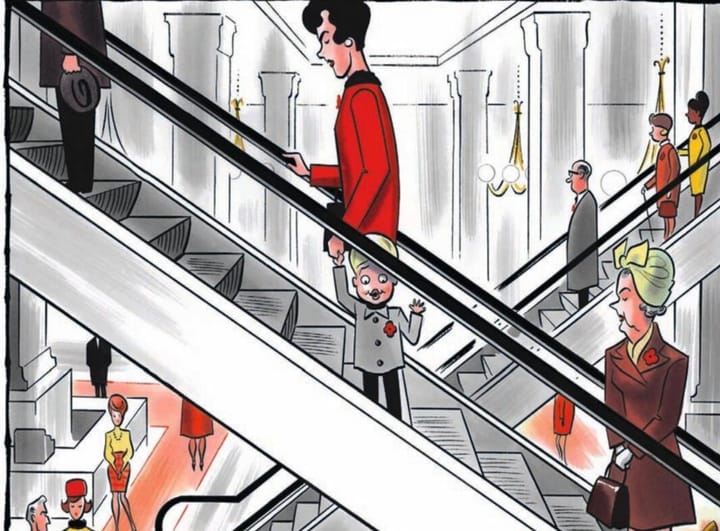
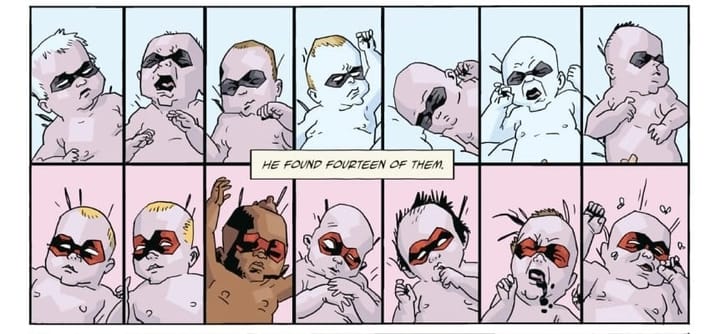
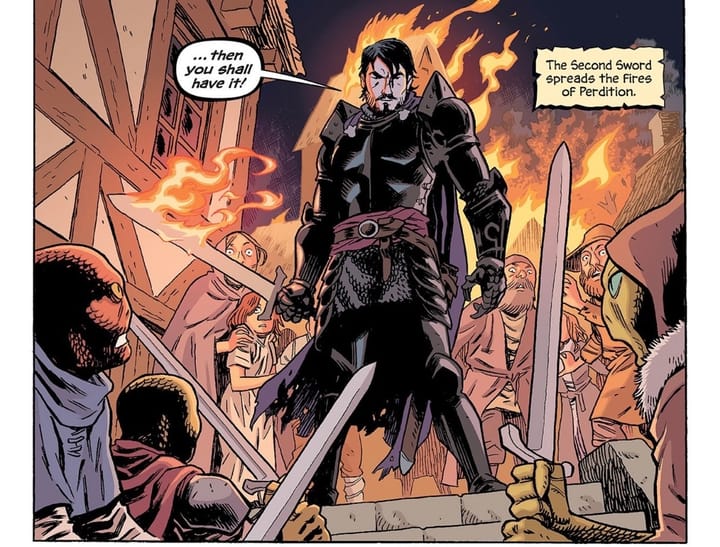
Comments ()